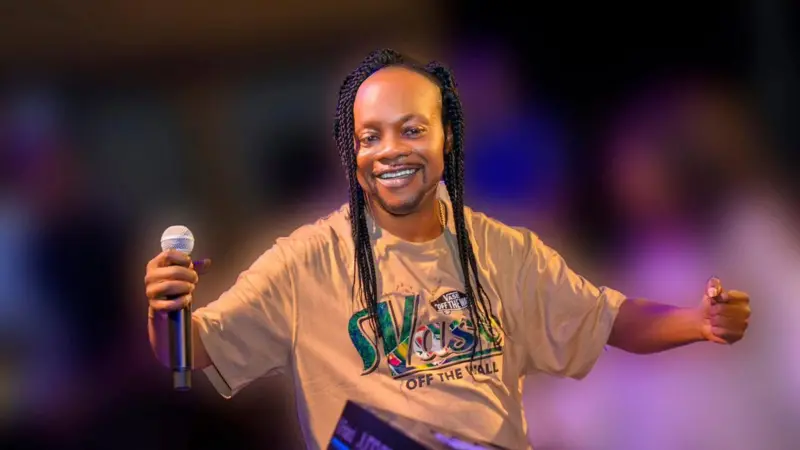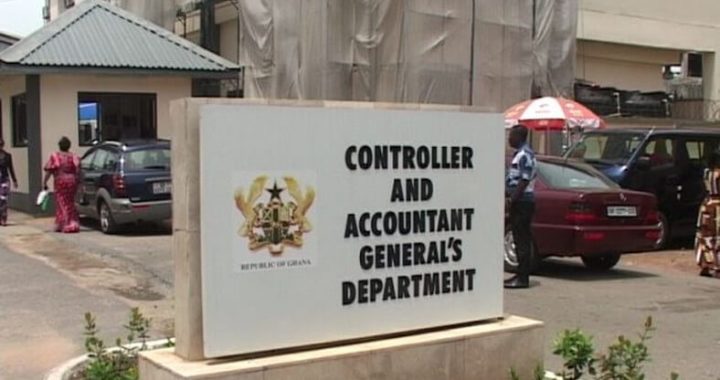Daddy Lumba does not deserve any state burial

Do you think Daddy Lumba deserves state burial? To answer this question we need to look at State Burials for Celebrities and do a Critical Analysis of Cultural, Financial, and Ethical Implications Against Honoring Daddy Lumba.
Since the death of Daddy Lumba, the Ghanaian musician, the nation has been divided on whether he should be given a state burial or not. For those who say yes, he deserves it; they have not been able to pin down any cogent reasons other than to allow their emotions to guide their suggestions. I belong to the school of thought that thinks Daddy Lumba does not deserve any state burial.
Who is Daddy Lumba?
Daddy Lumba was born on September 29, 1964, in Nsuta. He was officially named Charles Kwadwo Fosu. His music and stage name, Daddy Lumba, made him popular. Mr Johnson Kwadwo Fosuh and Madam Ama Saah are his parents.
The Ghanaian singer-songwriter, musician, and record producer had about 34 albums to his name. He was indeed a prolific and prominent figure when it comes to the Ghanaian highlife genre.
He was one of the few great exporters of the Ghanaian highlife globally and was widely regarded as one of the greatest and most influential Ghanaian musicians, according to Wikipedia
Daddy Lumba died on July 26, 2025, a few months after celebrating his 60th birthday. On 2nd August, a vigil will be held in his honour in Ghana.
Does Daddy Lumba deserve a state burial? No, he does not deserve it.
Before you crucify my stand and start raining insults, you will do yourself a lot of disservice if you do not read the following reasons backed by facts and history.
The practice of state burials for celebrities often presents a complex interaction of cultural, financial and ethical ramifications. In recent discussions, the suggestion of granting the Ghanaian musician Daddy Lumba a state burial has become a divisive theme, raising questions about equity, cultural importance and moral implications to honour people through public funerals. This essay critically examines these implications, advancing arguments against granting such honours based on these multidimensional factors.
Culturally, state burials often reflect the values and priorities of a society with respect to fame, art and legacy. Critics argue that raising certain people, such as Daddy Lumba, through a state burial runs the risk of eclipsing unrecognised heroes of greater social value. Ghana’s cultural panorama is rich in musicians, activists and community leaders whose contributions could be more deserving of public recognition and honour (Boateng, 2016). Emphasising a single celebrity can create a narrative that prioritises fame over community and social contributions, potentially alienating those that serve as pillars of their communities. In this way, the implications of state burials combine the status of celebrities with cultural importance, undermining the integrity of what defines merit within society.
Some have also argued against giving Daddy Lumba a state burial with the view that the late musician mostly sang profane songs in his lifetime; hence, honouring him with such a burial will be wrong in every respect and rather condone immorality.
Financially, costs associated with state burials can be substantial, and these resources may be poorly assigned. Public funds that alternatively could support community projects or public welfare initiatives are directed to funerals that attract significant media attention. This prioritisation raises eyebrows, especially taking into account the socio-economic realities of Ghana, where many citizens still deal with basic needs. The expense involved in a state burial for someone like Daddy Lumba could be seen as extravagant when juxtaposed in the context of pressing social problems. As Joiner and Seidemann (2018) articulate, public financial resources must reflect the ethical basis of a company, demanding scrutiny about the expenses that privilege the extravagant memorisation of a singular figure.
In addition, the ethical dilemmas surrounding state burials for celebrities cause a critical evaluation. The inherent value of life, and by death by extension, demands a reflective approach to recognition and honour. An ethical framework suggests that state honours should be granted to figures that have significantly moulded the public domain so that they raise community values and collective well-being. A musician held for his commercial success and his great attraction does not necessarily encapsulate the ideals of national honour (Khubchandani, 2020). The act of granting such recognition can dilute national values, raising ethical concerns about what it means to be honoured by the State in death.
The digital panorama further complicates conversation, presenting the challenges and opportunities in the way in which society commemorates its figures. As Der Nagel et al. (2017) discuss, the nature of death in the Internet era creates layers of complexity related to the culture of celebrities. A state burial for Daddy Lumba could amplify its digital legacy, remodelling public perception so that it markets the dual process. Such change could inadvertently prioritise the narratives of the media over the authentic community duel, which commercialises a figure whose public persona conflicts with many traditional mourning and memory values within the Ghanaian context (Ulvesæter, 2018).
The implications of state burials extend beyond mere financial assignments; they touch on the responsibility that governments have to represent their citizenship. The historical precedent suggests that, over time, state burials have often been equipped with a selective memory form that can exclude marginalised narratives (Yeboah, 2025). If Daddy Lumba, a figure that has often been involved in controversial issues, received this honour, it could reflect a support of the values it represents that some may find objectionable. The act of offering a state burial is reflected in social values, with implications that extend to the political and social fabric of the nation.
In addition, testimonies and public affection directed towards prominent figures such as Daddy Lumba run the risk of simplifying complex sociocultural dynamics in a binary of worship or vilipendium. Such reduction goes on the broadest discourse to address the challenges facing the cultural sector. These challenges can vary from representation issues to recognition of musicians from sub-present communities located outside the mainstream (Hodges, 2017). Raising the status of a celebrity through a state burial can reinforce existing inequalities and prejudices within the cultural landscape, creating an environment where only a few are honest, while many voices fade into the background.
As the conversation surrounding the morality of state burials continues, it is crucial to apply a multidisciplinary lens to explore the ramifications of recognising celebrities in this way. The ethical responsibility of the state extends to honour those whose contributions resonate deeply within social values. The decision to grant a state burial to a celebrity must, therefore, consider the cultural identity that it reinforces, the financial burden that can be imposed on the public and the ethical precedent that it establishes for collective memory (Wilson, 2016; Batin-Orillos, 2019).
In conclusion, the implications of giving Daddy Lumba a state burial are deep and multifaceted. From the cultural point of view, it runs the risk of eclipsing other deserving figures; financially, it could divert valuable and ethical resources, undermining the integrity of what it means to honour national figures. On the other hand, the State must strive to cultivate a memory model that defends inclusion and reflects a broader spectrum of social contributions. It is imperative to recognise that the burial act, particularly sanctioned by the state, is imbued with meaning and must align with the values that we want to defend as a society.
Source: Wisdom Hammond
Citations:
van der Nagel, E., Arnold, M., Nansen, B., Gibbs, M., Kohn, T., Bellamy, C., & Clark, N. (2017). Death and the Internet. https://minerva-access.unimelb.edu.au/bitstream/handle/11343/221587/Death%20and%20the%20Internet_2017-web.pdf
Wilson, S. (2016). Resting Places: The Burial Sites of More Than 14,000 Famous Persons (Vol. 2). McFarland. https://books.google.com/books?hl=en&lr=&id=FOHgDAAAQBAJ&oi=fnd&pg=PP1&dq=Daddy+Lumba+state+burial+controversy+blog+post+challenge+reasons+response&ots=UmTEVEBFK9&sig=U9ZITQW2Ur7xQ-lnjLLSLL7PeRw
Joiner, M. C., & Seidemann, R. M. (2018). Rising from the Dead: A Jurisprudential Review of Recent Cemetary and Human Rights Cases. Ohio Northern University Law Review, 45(1), 11. https://digitalcommons.onu.edu/cgi/viewcontent.cgi?article=1036&context=onu_law_review
Boateng, S. (2016). Popular Music In Ghana: Women and the Changing Perspectives on Gender and Sexuality (Master’s thesis, Kent State University). https://rave.ohiolink.edu/etdc/view?acc_num=kent1466179979
Ulvesæter, M. B. (2018). The’Yam’that dropped. An ethnographic study of the digital life of urban, Ghanaian youth (Master’s thesis, The University of Bergen). https://bora.uib.no/bora-xmlui/handle/1956/18790
Hodges, R. A. (2017). Christian Citizenship and the Foreign Work of the YMCA. University of California, Berkeley. https://search.proquest.com/openview/6929403f8ef590d4a53eff5f534e3a03/1?pq-origsite=gscholar&cbl=18750
Batin-Orillos, E. (2019). Blazing Light:… in the Grace of One Journey. AuthorHouse. https://books.google.com/books?hl=en&lr=&id=o9mYDwAAQBAJ&oi=fnd&pg=PT4&dq=Daddy+Lumba+state+burial+controversy+blog+post+challenge+reasons+response&ots=30jY0RlO2p&sig=EJozgp7ob261otvIYES0CUSPkns
Khubchandani, K. (2020). Ishtyle: accenting gay Indian nightlife. University of Michigan press. https://books.google.com/books?hl=en&lr=&id=VcfrDwAAQBAJ&oi=fnd&pg=PR7&dq=Daddy+Lumba+state+burial+controversy+blog+post+challenge+reasons+response&ots=_ZXPPLdrPa&sig=isez78i4OIMKEp5osXdcYOCusV0
Yeboah, R. (2025). From Hackney, With Love: An Intimate History of Gentrification. Biteback Publishing. https://books.google.com/books?hl=en&lr=&id=viFeEQAAQBAJ&oi=fnd&pg=PT11&dq=Daddy+Lumba+state+burial+controversy+blog+post+challenge+reasons+response&ots=cJ6Z5p-Vmd&sig=Z5MrbsCxPoOfyNdwwh2qoUu1DzE




 Terrorist Attack Ghanaian Tomato Traders in Burkina Faso
Terrorist Attack Ghanaian Tomato Traders in Burkina Faso  New Term 2 End of Term Question: Nursery to Grade 8 Exam Packs (2026)
New Term 2 End of Term Question: Nursery to Grade 8 Exam Packs (2026)  Why MTN Ghana’s Ghs399 Bundle is the Best Data Deal in 2026
Why MTN Ghana’s Ghs399 Bundle is the Best Data Deal in 2026  CAGD Salary Suspension 2026: Deadlines and Actions for Affected Staff
CAGD Salary Suspension 2026: Deadlines and Actions for Affected Staff
A master piece. Basically I was thinking about professor Allotey when he died about 6years ago. Not even a word was said about him in Ghana.
Thanks for your feedback. We do not believe he deserves any state burial.
This is complete trash
Truth is indeed bitter… He does not deserve a state burial…